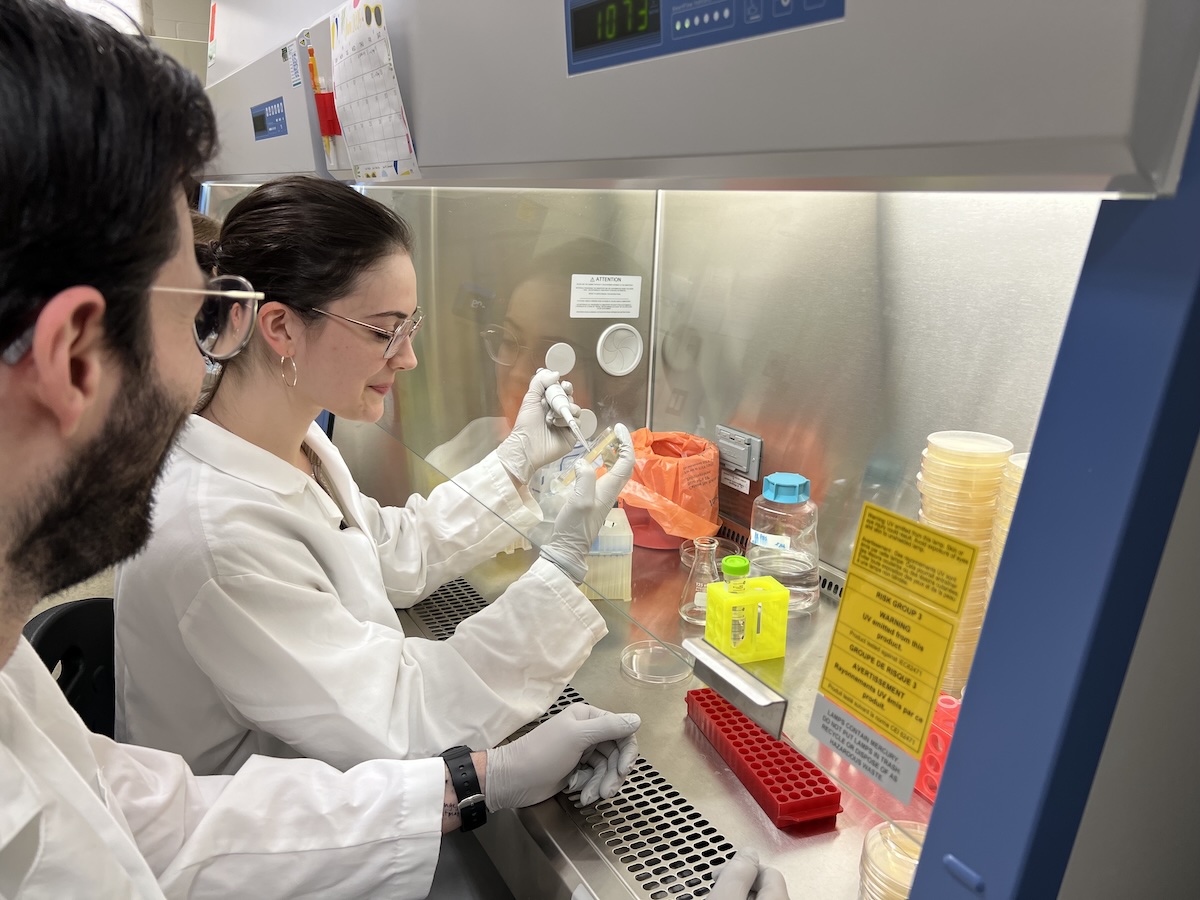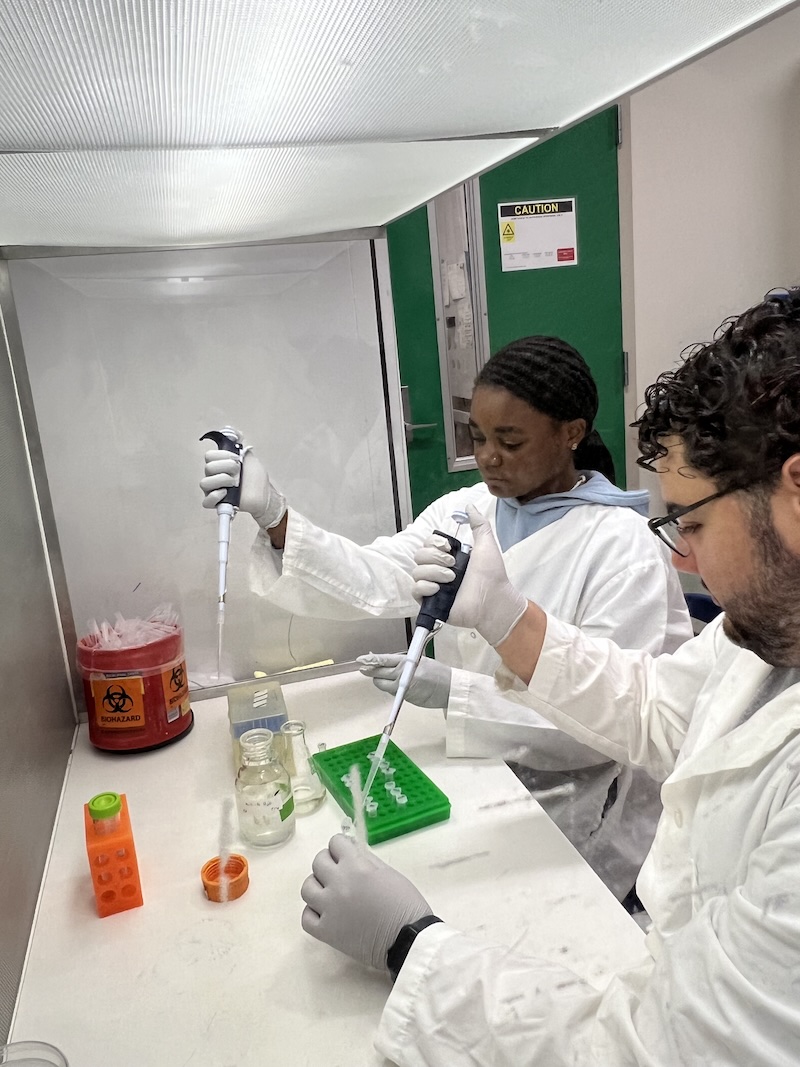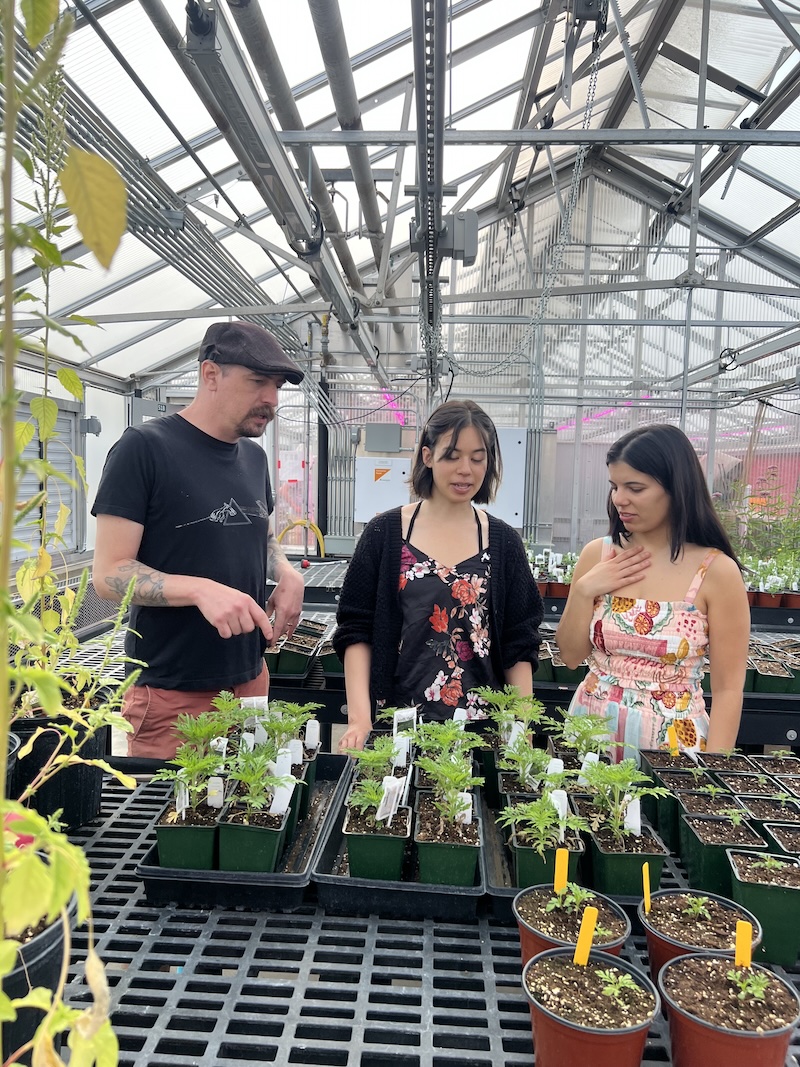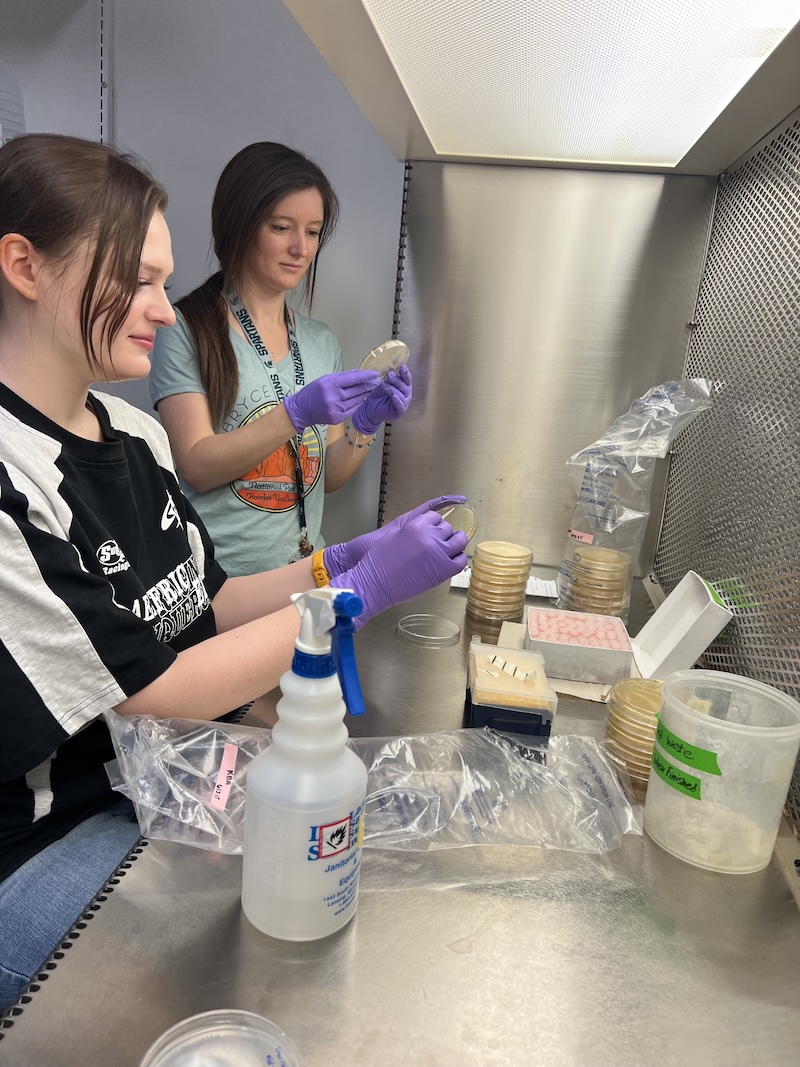A Summer of Discovery: Welcoming REU Students to the PSM Labs at MSU
Summer on campus means more than field days and quiet streets—it also means a fresh crop of students bringing new energy to our labs, thanks to an amazing group of undergraduate researchers joining us for the season.

Through the National Science Foundation’s Research Experience for Undergraduates (REU) program — as well as other summer research opportunities — dozens of students from across the country are here, diving headfirst into real-world research. For many, this is their first chance to work hands-on in a lab, guided by faculty, graduate mentors, and lab staff who are as passionate about mentorship as they are about science.
This summer, several PSM labs are hosting undergraduate students, and the projects they’re taking on are as diverse and inspiring as the students themselves.
Alejandro Rojas-Flechas’ Lab — From the US Virgin Islands to Midwestern Fields

NSF REU SaVaughna John-Baptiste is a senior at the University of the Virgin Islands, a public, historically black land-grant institution with two campuses and two extension facilities. With a growing interest in plant pathology and experience as an agronomy research assistant, SaVaughna is taking on a ten-week research project focused on fungi of the Cercospora and Diaporthe genera, a group of fungal pathogens that affect soybeans, with her grad-student mentors Mariana Souza and Colette Ackley in Dr. Alejandro Rojas’ lab. “She’s not just contributing to ongoing work,” Alejandro said, “this project is uniquely hers, built in collaboration with Mariana to reflect both the lab’s goals and her personal research interests.” And best of all, MSU is now at the top of her list for possible grad schools!
Sarah Lebeis’ Lab — Exploring Microbial Communities and Stress Responses
Dr. Sarah Lebeis is hosting two REU students this summer, both tackling big questions in plant-microbe interactions:

Macy White from Messiah University in Pennsylvania is here with support from the Great Lakes Bioenergy Research Center (GLBRC). Her mentor is Alex Demetros, graduate student in Microbiology, Genetics, & Immunology (MGI) who works on “community immunity” — the complex relationship between the plant microbiome and opportunistic pathogens.

Skyler Cobb is participating through the Summer Research Opportunities Program (SROP) and is mentored by Kevin Santiago-Morales, a graduate student in Microbiology, Genetics, & Immunology (MGI). Skyler is studying how rhizosphere bacteria affect plant development during nutrient stress, specifically phosphorus deficiency. Originally from Florida and now a student at Bennett College in North Carolina, Skyler brings a strong scientific curiosity and a fresh perspective to the lab.
Eric Patterson’s Lab — Deep-thinking Weed Management

In Dr. Eric Patterson’s lab, NSF REU Emma (Emmy) Saarnio from Oberlin College is exploring how weeds evolve resistance to herbicides. Mentored by post-doc researcher Sara Álvarez Rodríguez, Emmy is contributing to a project that aims to understand fundamental resistance mechanisms so they can be thwarted with new management strategies — a timely and important challenge in agricultural science.
Michelle Hulin’s Lab — Why are plant pathogens so effective at what they do?

Dr. Michelle Hulin is hosting NSF REU Lauren Tabor from Grand Valley State University, who is learning about what makes bacteria pathogens of cherry, starting with plating out some fresh cultures. “If we’re going to be able to control these diseases,” Hulin said, “we must begin with understanding how the pathogens work at the cellular level.”
Why It Matters
While the lab work is central to the REU experience, what these students bring — and take home — goes far beyond experiments and data. Their questions challenge us. Their energy lifts us. And the perspective they gain from this experience — on research, on collaboration, on the value of science — will extend far beyond this brief summer session.
We’re grateful for the support of NSF, SROP, and most of all, the generosity of our PIs, mentors, and lab teams who make these experiences possible.To all our undergraduate visitors: welcome to MSU and PSM. We’re glad you’re here.
At each REU Site, students work closely with faculty and other senior researchers to:
- Conduct authentic research.
- Receive mentoring.
- Build their knowledge and research skills.
- Learn about educational and career pathways in STEM.
Through supplemental funding, faculty or other investigators who hold NSF research grants might also be able to support one or more students to conduct research related to the investigator's NSF-funded research project.



 Print
Print Email
Email




